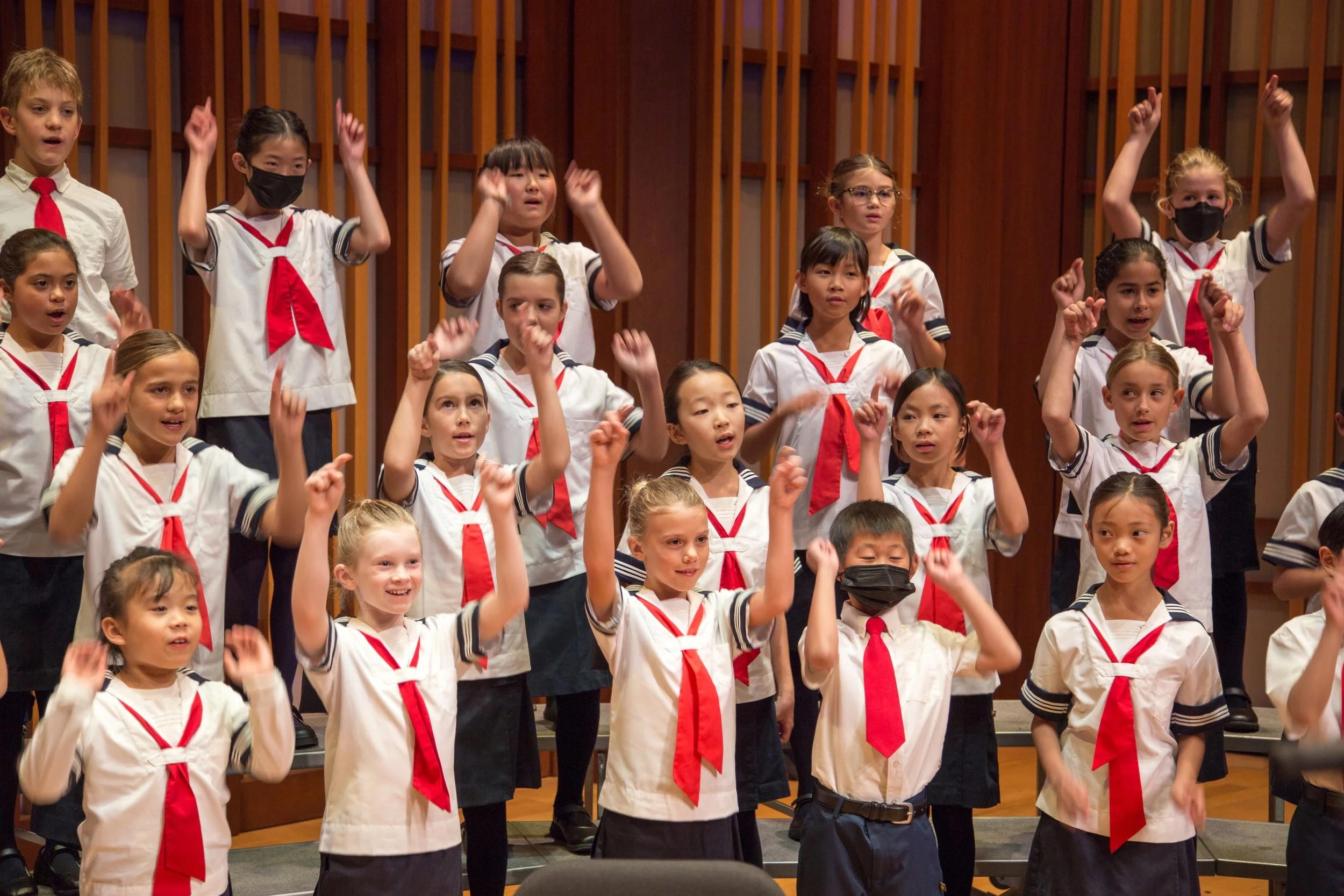Have you ever wondered what qualities make a good chorister and if your child has what it takes to be successful in a children's choir?
We recently sat down with Ruthie Millgard, Artistic Director of the San Diego Children’s Choir and the team of Ensemble Program instructors to discuss this topic.
Ruthie started off the discussion by describing at the highest level what she has seen, in her 20 years of teaching, to be the major contributor to success. “An enthusiasm for choral singing is the big answer, with a number of other qualities falling under that umbrella. Not just enthusiasm for singing, but choral singing is especially important, since collaboration is key.”
“My best students don’t just love singing, they love harmony and that evolves into a love of music and they become good musicians”, added Marielena Teng who directs the Intermediate Choir.
Abby Greathouse, who teaches Preparatory and Apprentice ensembles said the following, “My most engaging students are attentive, even at a young age, and they are asking questions. I find the students that do the best tend to ask the most questions of themselves or in the class so we can all learn. That inquisitiveness is special to see.”
Margie Orem, who has taught beginning choristers for 35 years, had this to say. “The camaraderie, the desire to be part of a team, when they like being with people, that is an important quality.” “But choir can also be a great place for introverts,” added Ruthie, “Children who don’t necessarily love the social interaction, but love the product, the harmony, the hard work, they can be their best introverted selves, while experiencing the group aesthetic.”
Do physical qualities, like rhythm, pitch or tone need to be evident in a chorister?
Younger students can learn these qualities as part of their choral education. Parents don’t need to see innate musical ability. What usually drives a parent to bring their kids to choir is noticing their child loves to sing around the house, even if they aren’t necessarily a good singer. That can be taught.
Is there anything that indicates choir is not for your child? Ruthie said, “You can have all the experiences in the world, but it isn't going to make a difference if the child is not enthusiastic about being part of a choir. At the end of the day, it comes back to enthusiasm and a love of singing.”

